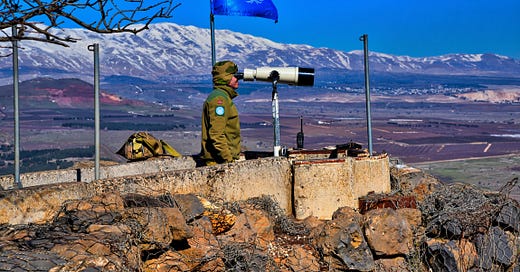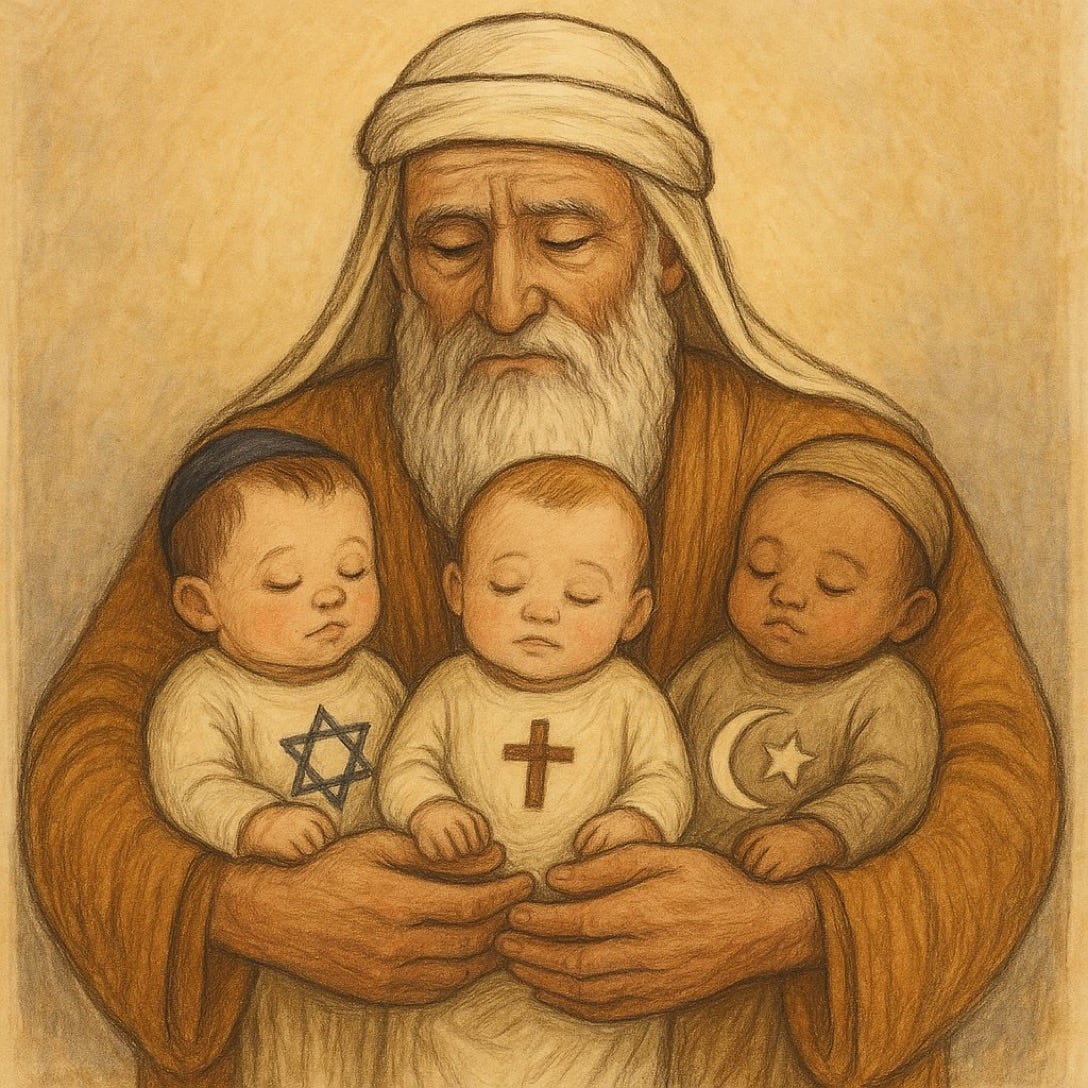The Stakes Could Not Be Higher: Iran, Israel, and the “Christian” West
Core Beliefs and Central Values are in Great Tension and Will Impact the Future of the World We Live In and the World We Leave Behind
Three births. Three deaths. Three futures.
We are watching something ancient unfold in real time.
The headlines speak of rockets, red lines, and retaliations. We’re learning more about Iran’s missile range than we ever imagined needing to know. Different people. Different countries. Different ethnicities. Different cultures.
But there is something deeper at stake than borders or tribal conflict.
Something older than politics.
Something more decisive than military might.
Can’t We All Just Get Along?
Yesterday, I came across a well-meaning illustration about the love and goodwill that should exist between the People of the Book—Jews, Christians, and Muslims. The message was simple and sincere: Can’t we all just get along?
On paper, it seems possible. But in practice, it is far more complicated.
Beneath the surface lies a clash of civilizational convictions. Not merely a conflict of interests, but a collision of theologies.
Three great religions—Judaism, Islam, and Christianity—trace their roots to Abraham. But from that shared root, three very different branches have grown, each telling a distinct story about who God is, how He acts, and what the world is waiting for.
And each religion reflects the life of its founder—how he was born, how he died, and what legacy he left behind.
Three Births
Muhammad was born around 570 AD in Mecca to the Quraysh tribe. Orphaned early and raised in a pagan culture, his birth was natural and unremarkable. His call to prophecy came much later, at age 40. In Islam, he is the final prophet—fully human, never divine.
Moses was born under a death sentence. Pharaoh had ordered every Hebrew male child to be killed. His mother hid him in a basket among the reeds, and he was drawn out by Pharaoh’s daughter. His life began with providence and paradox: saved by the house that sought to destroy him.
Jesus was born to a virgin in Bethlehem, in fulfillment of ancient prophecy. His birth was heralded by angels, feared by a king, and adored by both shepherds and scholars. From the beginning, He was God with us. Fully human, fully divine.
One birth was natural.
One was providential.
One was miraculous.
Each reveals the mission to come.
Three Deaths
Muhammad died in the arms of Aisha, his third wife, whom he married when she was six and consummated the marriage when she was nine. She was one of nine living wives when he died. He died as a prophet and military general, the head of an expanding empire. Surrounded by followers, he died with power and authority.
Moses died alone on Mount Nebo. His strength was undiminished, but he was not allowed to enter the Promised Land. He died under the law—faithful but judged. According to Scripture, God Himself buried him. His death marked the end of a long obedience in the same direction.
Jesus died on a Roman cross—falsely accused, publicly shamed, and brutally executed. He raised no army, resisted no arrest, and pronounced forgiveness on His executioners. His death was not the end of His power—it was the fullness of His purpose.
Each man died as he lived.
One, with his sword at his side, in the arms of a child-wife.
One, alone on a mountain, looking but not entering.
One, on a cross, having forgiven the world.
And the world they left behind still bears their imprint.
Keep reading with a 7-day free trial
Subscribe to The Anglican to keep reading this post and get 7 days of free access to the full post archives.






